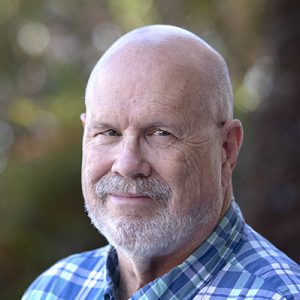Table Talk – Glimpses into the Conversations and Teachings of Jesus during the Last Supper
As we continue to look at the event of the Last Supper, we encounter pivotal moments where Jesus seeks to deepen His disciples’ understanding of His divine identity and inseparable unity with the Father. During their final gathering, Jesus confronts the limitations of His disciples’ comprehension, particularly in an exchange with Philip that lays open the heart of His ministry.
7. Sticks & Stones
Typically the titles I use have something to do with the verse that follows. This is not the case here, and an explanation will follow.
“If you had really known me, you would know who my Father is. From now on, you do know Him and have seen Him!”
Philip said, “Lord, show us the Father, and we will be satisfied.”
Jesus replied, “Have I been with you all this time, Philip, and yet you still don’t know who I am? Anyone who has seen me has seen the Father! So why are you asking me to show Him to you? Don’t you believe that I am in the Father and the Father is in me? The words I speak are not my own, but my Father who lives in me does His work through me” (John 14:7-10 NLT).
Perhaps Philip was being too literal, but how often did Christ speak on the topic of Him with His Father? A bunch. Here are a few.
Anyone who receives you receives me, and anyone who receives me receives the Father who sent me (Matthew 10:40 NLT).
My Father has entrusted everything to me. No one truly knows the Son except the Father, and no one truly knows the Father except the Son and those to whom the Son chooses to reveal Him (Matthew 11:27 NLT).
All things have been handed over to me by my Father, and no one knows who the Son is except the Father, or who the Father is except the Son and anyone to whom the Son chooses to reveal Him (Luke 10:22 ESV).
One of the most definitive statements that Christ made was John 10:30. “I and the Father are one” (John 10:30 ESV).
These are the things of which Jesus revealed about Himself and the Father. But even the Pharisees were aware of this claim. (And this is where the stones come in.)
You may recall the miracle at the Pool of Bethesda, in John chapter 5.
There was a man who had been paralyzed for 38 years, and Jesus asked him, “Do you want to be healed?”
The sick man answered Him, “Sir, I have no one to put me into the pool when the water is stirred up, and while I am going another steps down before me.”
Jesus said to him, “Get up, take up your bed, and walk.” And at once the man was healed, and he took up his bed and walked (5:6-9 ESV).
Now unfortunately, it was the sabbath, and you do NOT heal on the Sabbath, let alone carry your bed. Of course, the Jewish leaders jumped all over the formerly paralyzed man, and said, “It is the Sabbath, and it is not lawful for you to take up your bed” (5:17 ESV).
This is what got Jesus in trouble with the Pharisees, and then He goes on to say: “My Father is working until now, and I am working” (5:17 ESV).
And their response to this healing, and bed-carrying, Sabbath breaking and Christ’s latest comment: This was why the Jews were seeking all the more to kill Him, because not only was he breaking the Sabbath, but he was even calling God His own Father, making Himself equal with God (5:18 ESV).
But the most volatile verse (at least for the Jews) is found in John chapter 8.
Jesus said to them, “Truly, truly, I say to you, before Abraham was, I am” (John 8:58 ESV)
The NLT does an interesting and most appropriate swap in that last phrase: “Before Abraham was even born, I AM!” It is understood Jesus is claiming that He is the Pre-Existent One, whose personal name is Yahweh.
An interesting note: In John chapter 8, Jesus speaks the phrase “I am” 15 times. Out of those 15, two more speak the Name:
Speaking to the crowd at the Temple: Jesus continued, “You are from below; I am from above. You belong to this world; I do not. That is why I said that you will die in your sins; for unless you believe that I AM who I claim to be, you will die in your sins” (John 8:24 NLT).
If they don’t understand, if they don’t accept the LORD sent His Son to be the Savoir of the world, they will indeed die in their sins. Furthermore, we have seen with our own eyes and now testify that the Father sent his Son to be the Savior of the world (1 John 4:14 NLT).
Still speaking to the crowd at the Temple:
So Jesus said, “When you have lifted up the Son of Man on the cross, then you will understand that I AM he. I do nothing on my own but say only what the Father taught me” (John 8:28 NLT).
With His death on the cross, this would enable them to see Him for Who He really is: The Son of God; the Son of Man; the Savor of the world; and the Lamb of God.
The next day John saw Jesus coming toward him and said, “Look! The Lamb of God who takes away the sin of the world! (John 1:29 NLT).
But how did they react to this boldest and most personal statement?
At that point they picked up stones to throw at Him. But Jesus was hidden from them and left the Temple (John 8:59 NLT).
It was not His time to die, nor was it their time to believe.
Back to Philip’s request: “Lord, show us the Father, and it is enough for us.” Just reading through the Gospel of John, Jesus on numerous occasions mentioned His relationship to the Father, and Philip should have been able to recall those many pronouncements. (But it’s not my job to beat up the disciples, because they just didn’t get it, at least not then.)
Remember the context surrounding “Who’s the greatest?” There are some verses which explain their lack of understanding.
He came to Simon Peter, who said to him, “Lord, do you wash my feet?” Jesus answered him, “What I am doing you do not understand now, but afterward you will understand” (John 13:6-7 ESV).
Then the disciples came and said to Him, “Why do you speak to them in parables?” And He answered them, “To you it has been given to know the secrets of the kingdom of heaven, but to them it has not been given. For to the one who has, more will be given, and he will have an abundance, but from the one who has not, even what he has will be taken away. This is why I speak to them in parables, because seeing they do not see, and hearing they do not hear, nor do they understand” (Matthew 13:10-13 ESV).
His disciples did not understand these things at first, but when Jesus was glorified, then they remembered that these things had been written about Him and had been done to Him (John 12:16 ESV).
His disciples said, “Lo, now You are speaking plainly and are not using a figure of speech. “Now we know that You know all things, and have no need for anyone to question You; by this we believe that You came from God” (John 16:29-30 ESV).
Sometimes Christ spoke plainly, often He would teach in parables. It is the “Plain moments” which should have been understood, but when Jesus just announced He was leaving, both Thomas and Philip would have been caught up in that. They wanted to hang onto Him, but Christ wanted them to hang onto His words. Fortunately, Christ was a patient teacher, and we do have His Spirit.
I invite you to reflect on our own understanding of Jesus’ identity and the way He reveals the Father to us, encouraging a deeper engagement with the transformative knowledge that to see Jesus is to see the Father Himself.
- Is His Word something close to your heart?
- Is it something that guides your thoughts and actions throughout the day?
- Are there passages and teachings which may speak to you, but the application eludes you?
- Have you figured out what will please Christ and are you doing it?
One Thing: PRAY FOR PERSEVERANCE (2 Peter 1:5-8).
Click here to go to the next lesson. The previous lesson is here.





